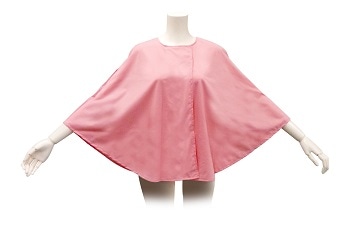Jul 25 2016
FASTENANOTM, an extra-soft polyester hook-and-loop fastener developed and marketed in Japan by Teijin Limited, will now enter the global market.

FASTENANOTM uses Teijin’s NANOFRONT® polyester nanofiber-pile fabric for its loop surface, as well as polyester raised fabric for its hook surface. While FASTENANOTM achieves high adhesiveness when pulled in a horizontal direction, it separates easily when pulled in a vertical direction. The key is the NANOFRONT® pile fabric’s high friction, which enables to twine effectively around the hook surface.
When the surfaces are separated, the ripping sound is much quieter than conventional hook-and-loop fasteners. The hook and loop surfaces both are very soft so they have a nice feel. In addition, their pliability enables them to be fashioned into various shapes.
NANOFRONT®, the world’s first 700-nanometer ultra-fine polyester fiber used for FASTENANOTM, features nano-sized bumps that increase its surface area by dozens of times compared to regular fiber, resulting in excellent slip resistance, softness, heat shielding, absorption, translucence and filtering properties.
Teijin is now developing FASTENANOTM items that will do away with bothersome hooks and buttons, including bedclothes, sundries, furniture, apparels, uniforms and medical applications. FASTENANOTM fasteners will go on sale in FY 2016.
Teijin (TSE: 3401) is a technology-driven global group offering advanced solutions in the areas of sustainable transportation, information and electronics, safety and protection, environment and energy, and healthcare. Its main fields of operation are high-performance fibers such as aramid, carbon fibers & composites, healthcare, films, resin & plastic processing, polyester fibers, products converting and IT. The group has some 150 companies and around 16,000 employees spread out over 20 countries worldwide. It posted consolidated sales of JPY790.7 billion (USD 7.4 billion) and total assets of JPY 823.4 billion (USD 7.7 billion) in the fiscal year ending March 31, 2016.